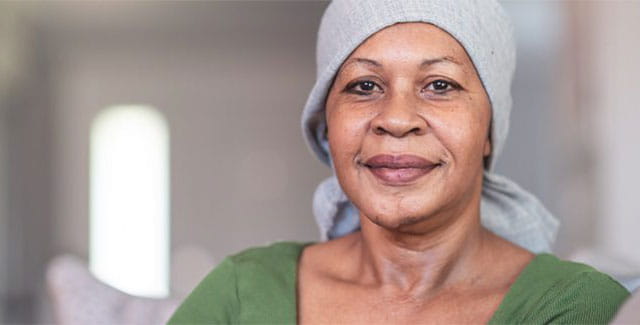

Addressing Health Disparities in Our Community
Black Americans in the Pittsburgh area and across our country experience disparities when it comes to their health, including chronic conditions, access to care, preventive screenings, and mental health.
Health disparities are preventable and UPMC is committed to driving health education and programming, partnering with our community, and training health care providers to ensure that all individuals and families have the opportunity to live healthier lifestyles.
The first step to preventing health disparities starts with identifying and understanding them. Health disparities can result among Black patients from multiple factors including but not limited to:
- Individual and behavioral factors
- Inadequate access to health care
- Educational inequalities
- Environmental threats
- Poverty
On the Forefront of Health Disparities
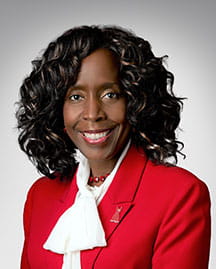
Dawndra Jones, DNP, RN, NEA-BC
Dawndra Jones is vice president of Patient Care Services and chief nursing officer for UPMC Magee-Womens Hospital. She is passionate about diversity and inclusion, population health, and dedicated in diversifying the nursing workforce.
Read Dawndra Jones' Interview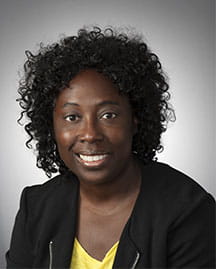
Slyvia Owusu-Ansah, MD
Dr. Owusu-Ansah is the medical director of EMS and associate vice chair of Diversity, Equity, and Inclusion at UPMC Children’s Hospital of Pittsburgh, where she is dedicated to bridging health care gaps in underserved and minority communities.
Read Dr. Owusu-Ansah's Interview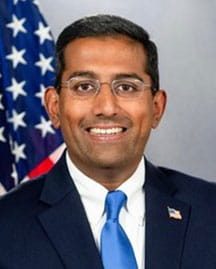
Representative Arvind Venkat, MD, Pennsylvania House of Representatives
Rep. Venkat is both an emergency physician and state representative who advocates to improve health care equality and accessibility throughout Pennsylvania.
Read Rep. Venkat, MD's Interview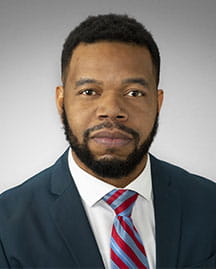
Lawrence Uradu, MD
Dr. Uradu specializes in diagnostic radiology. He is the director of Diversity, Equity, and Inclusion for Imaging Servies at UPMC, and is dedicated in diversifying the field of medicine.
Read Dr. Uradu's InterviewMore interviews from health disparities experts:
Johanna Vidal-Phelan, MD
Dr. Vidal-Phelan is the chief medical officer of the Quality Department for UPMC's Insurance Division where she develops strategies for the division's diversity and equity initiatives.
Read Dr. Vidal-Phelan Interview.
George Robinson II, MBA
George Robinson II, MBA, is director of UPMC Supplier Diversity and Inclusion, which provides minority-owned, woman-owned, and disadvantaged businesses, as well as LGBTQIA+ and veteran-owned enterprises with equal access to procurement opportunities at UPMC and UPMC Health Plan.
Read Dr. Robinson’s Interview.
Representative Patty Kim, Pennsylvania House of Representatives
Rep. Kim advocates to improve health care equality and accessibility in her district and throughout the Commonwealth.
Read Representative Patty Kim's Interview.
Rickquel “Rikki” Tripp, MD, MPH
Rickquel “Rikki” Tripp, MD, MPH, is the EMS medical director for UPMC Prehospital. She is the vice chair of diversity, health equity, and inclusion within the Department of Emergency Medicine and UPMC Graduate Medical Education. A former flight surgeon with the U.S. Navy on active duty, Dr. Tripp is currently a commander in the U.S. Navy Reserves.
Aaron Taylor, MD
Dr. Taylor is an orthopaedic trauma surgeon at UPMC Mercy's Division of Trauma, and dedicated in addressing health disparities in his field.
Amanda McCoy, MD, MPH
Amanda McCoy, MD, MPH, is an orthopaedic surgeon at UPMC Children’s Hospital of Pittsburgh and assistant professor in the Division of Pediatric Orthopaedics at the University of Pittsburgh School of Medicine. She is working to raise awareness and improve diversity, equity, and inclusion efforts at UPMC.
Carlos Cream, MD, PhD
Dr. Cream is an internist and UPMC Central Pa.'s director of diversity for graduate medical education, and committed to diversifying the medical field.
A.J. Conrad Smith, MD
Dr. Smith is the director of the Cardiac Catheterization Laboratory at the UPMC Heart & Vascular Institute and dedicated in promoting equity and diversity in health care.
Madeleine Courtney-Brooks, MD, MPH
Dr. Courtney-Brooks is the director of the Magee-Womens Gynecologic Cancer Program of UPMC Hillman Cancer Center. She helps women with gynecologic cancers and is dedicated in addressing racial and rural health disparities in Pennsylvania.
Read Dr. Courtney-Brooks Interview.
Jonathan K. Han, MD, and Winfred T. Frazier, MD, MPH
Dr. Frazier and Dr. Han both family medicine physicians and leaders at UPMC St. Margaret New Kensington Family Health Center. They are devoted to addressing health disparities among underserved communities.
Read Dr. Han and Dr. Frazier's Interview.
Representative Morgan Cephas, Pennsylvania House of Representatives
Rep. Cephas is dedicated on improving maternal mortality rates and access to health care in her district and throughout the Commonwealth.
Naudia N. Jonassaint, MD, MHS
Dr. Jonassaint is the vice chair of diversity, equity, and inclusion for the UPMC's Department of Medicine and is devoted to addressing health disparities in liver transplant outcomes.
Read Dr. Jonassaint's Interview
Diego Chaves Gnecco, MD, MPH
Dr. Chaves-Gnecco is a developmental-behavioral pediatrician with UPMC Children’s Hospital of Pittsburgh. He is the founder of Salud Para Niños (Health for the Children), which provides primary care for underserved community members.
Read Dr. Chaves-Gnecco's Interview
Sharee Livingston, DO
Dr. Livingston is the chair of Obstetrics and Gynecology at UPMC Lititz, and is dedicated to addressing maternal mortality and providing doula care for pregnant women of color.
Read Dr. Livingston's Interview
Demond E. Bledsoe, PhD, LPC
Dr. Bledsoe is a senior program director at UPMC Western Psychiatric Hospital, serving inpatient behavioral health units and select outpatient facilities across the state, and helping minority populations seek care.
Tracey Conti, MD
Dr. Conti is the Chair of the Department of Family Medicine at the University of Pittsburgh and UPMC dedicated to addressing health care disparities, including care delivery in underserved communities, medical education, and women’s health issues.
Representative Austin A. Davis, Pennsylvania House of Representatives
Rep. Davis is a strong advocate for addressing and fighting health disparities in his district and throughout the region.
Utibe Essien, MD, MPH
Dr. Essein is a physician researcher. His work focuses on racial/ethnic health disparities in cardiovascular disease care and social determinants of health.
Hyagriv Simhan, MD, MSCR
Dr. Simhan, a physician at UPMC Magee-Womens Hospital, is a leader in promoting increased safety and health care quality for pregnant women.
Learn More From UPMC HealthBeat
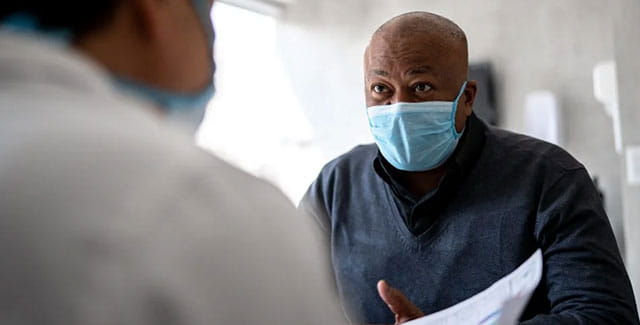
Glossary:
- Health Disparities: preventable and disproportionate health conditions and inequalities that exist among all ages in a certain population.
- Health Equity: where everyone has a fair and equal opportunity to get the health care that they need.
- Health Literacy: the degree to which an individual can obtain, process, and understand basic health information, so that they can make the best health care decisions.
- Social Determinants of Health: factors like biology and genetics, individual behavior, social environment, physical environment, and health services, that contribute to an individual’s overall health outcome.
- Media Literacy: the ability to access, analyze, and evaluate media in a variety of forms. Media literacy is important when it comes to health care because it impacts how individuals make health care decisions based from the information that is presented around them.
- Unconscious Bias: social stereotypes people unintentionally form about groups of people that can affect how they perceive and interact with them.
Cancer Disparities in Our Community
About one in three Black Americans will be diagnosed with cancer in their lifetime, and studies show that Black men and women have the highest rate of death from cancer than any racial or ethnic group in the United States.
Learn more about these disparities and what UPMC is doing to address them.



